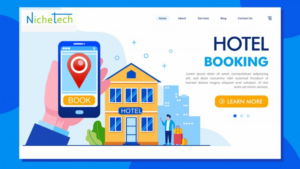The advent of 5G technology marks a significant milestone in the evolution of mobile connectivity, promising unprecedented speeds, lower latency, and greater capacity. As this next-generation network continues to roll out globally, its impact on mobile app development is profound. Here’s how 5G is set to transform the landscape of mobile app development.
1. Supercharged Speeds and Reduced Latency
5G offers speeds up to 100 times faster than 4G, with latency as low as 1 millisecond. This dramatic improvement opens up new possibilities for mobile apps, particularly those requiring real-time data processing. Apps can now deliver seamless experiences without lag, which is crucial for applications like:
Real-Time Gaming: Multiplayer online games can provide smoother, more immersive experiences.
Live Streaming: Higher resolution video streaming without buffering.
Video Conferencing: Enhanced quality with minimal lag, crucial for remote work and virtual meetings.
2. Enhanced Augmented Reality (AR) and Virtual Reality (VR) Experiences
The bandwidth and low latency of 5G are game-changers for AR and VR applications. These technologies rely on quick data transfer and processing, and 5G’s capabilities make them more accessible and effective. Developers can create more complex and interactive AR/VR experiences, such as:
Interactive Shopping: Virtual try-ons and interactive product demonstrations.
Immersive Gaming: Rich, interactive environments with real-time interactions.
Virtual Tours: High-quality, real-time guided tours of places around the world.
3. IoT Integration and Smart Applications
5G is a catalyst for the Internet of Things (IoT), enabling a more connected ecosystem of devices. Mobile apps can now interact with a vast network of IoT devices efficiently, paving the way for smart applications in various domains:
Smart Homes: Seamless control and automation of home devices through mobile apps.
Healthcare: Real-time monitoring and data exchange between wearable devices and health apps.
Smart Cities: Enhanced management of city infrastructure, traffic, and public services.
4. Cloud Computing and Edge Computing Synergy
With 5G, the reliance on local device processing power is reduced. Apps can leverage cloud and edge computing to handle data processing, storage, and analytics. This approach benefits mobile apps by:
Reducing App Size: Offloading heavy processing to the cloud, making apps lighter and more efficient.
Improving Performance: Utilizing edge computing to process data closer to the source, reducing latency and enhancing responsiveness.
Enhancing Scalability: Easily scaling services to meet demand without compromising performance.
5. Revolutionizing Mobile User Experiences
5G’s capabilities allow developers to push the boundaries of what mobile apps can do, leading to innovative user experiences. Some potential transformations include:
Enhanced AI Integration: More sophisticated AI-driven features like real-time language translation and advanced image recognition.
Interactive Content: Dynamic and interactive content that adapts to user interactions in real-time.
Improved Security: Faster, more secure connections that can better protect user data and privacy.
6. Challenges and Considerations
While the benefits of 5G are substantial, developers must also navigate several challenges:
Infrastructure Readiness: Ensuring that regions have the necessary 5G infrastructure to support these advanced apps.
Development Costs: Adapting to new technologies can be costly and require significant investment in new tools and training.
User Adoption: Encouraging users to adopt 5G-enabled devices and services.
The Future is Now: Embracing the 5G Era
As 5G adoption continues to grow, mobile app development is poised for an exciting future. Mobile app development companies should be prepared to:
Develop for a world of faster connections: Take advantage of 5G’s capabilities to create innovative, data-driven apps.
Focus on user experience: Prioritize features that leverage the speed and reliability of 5G to create a seamless and engaging experience.
Embrace new technologies: Explore how 5G can integrate with AR/VR, AI, and other emerging technologies to push the boundaries of mobile app development.
Conclusion
5G technology is poised to revolutionize mobile app development, offering new opportunities to enhance user experiences, innovate with new features, and create more efficient and powerful applications. As 5G continues to roll out, developers who leverage its capabilities will be at the forefront of this transformative wave, delivering cutting-edge solutions that redefine what is possible in the mobile app landscape.
By staying abreast of these advancements and continually adapting to the new possibilities presented by 5G, mobile app developers can ensure they remain competitive and relevant in an increasingly fast-paced and connected world.







